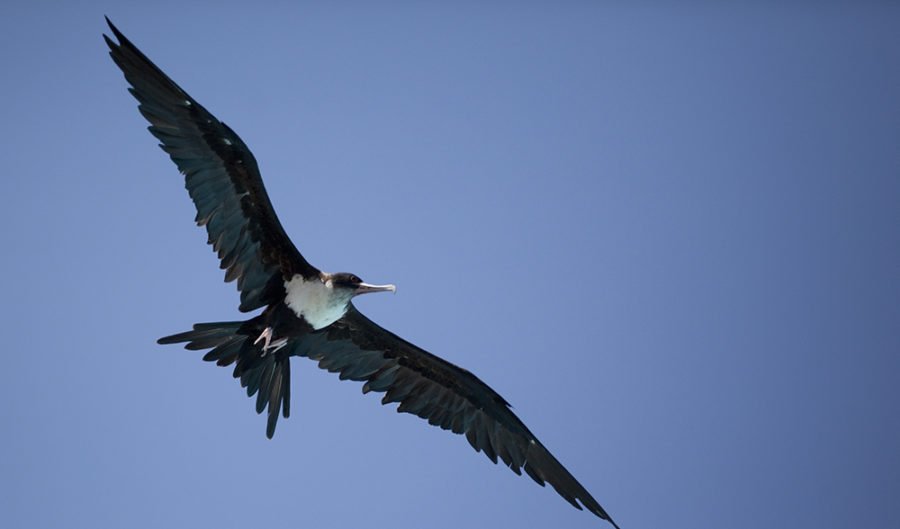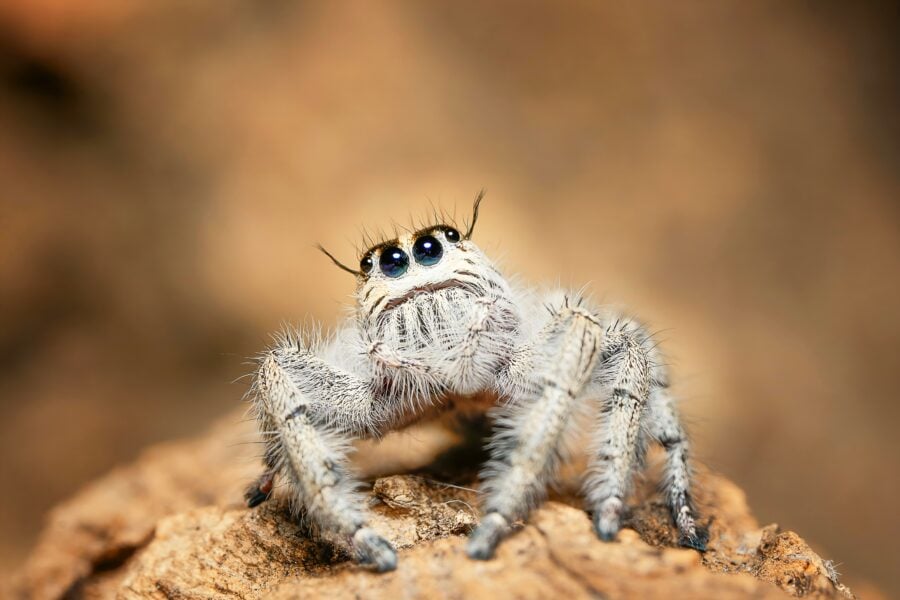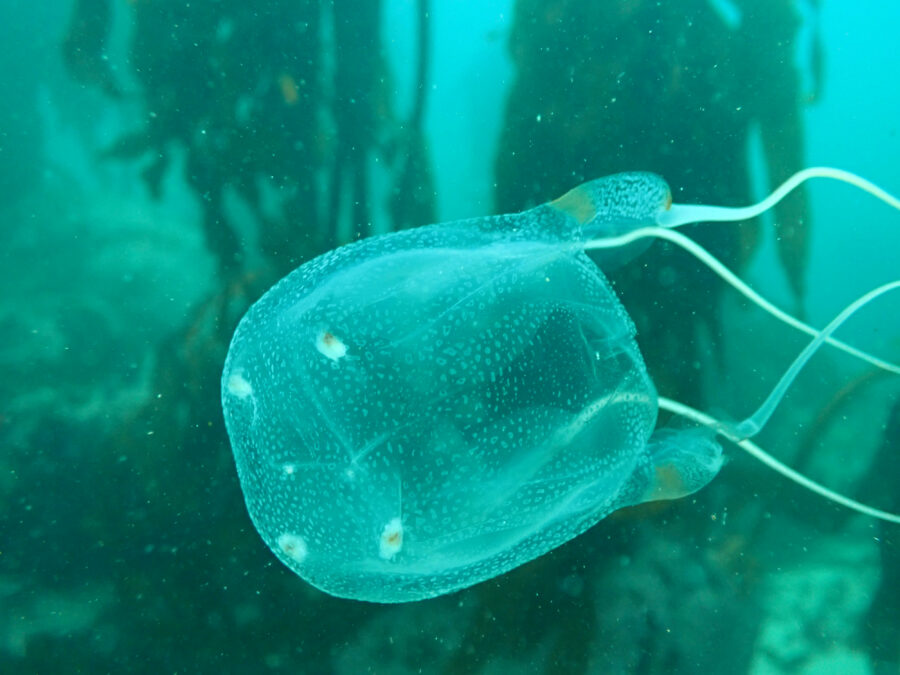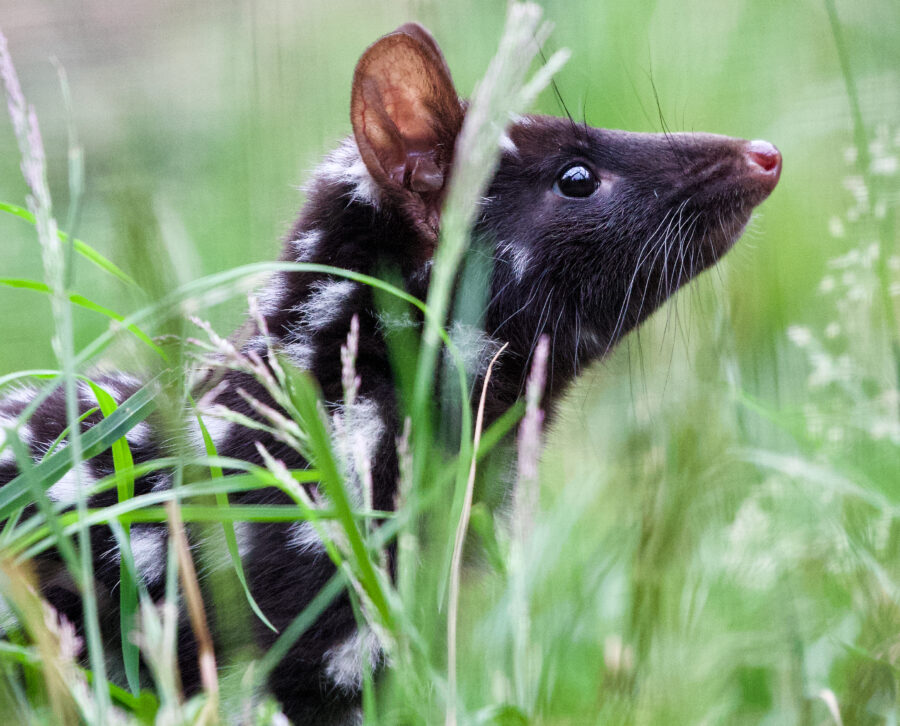Frigatebirds make other birds vomit — and then they eat it

Bec Crew
Bec Crew
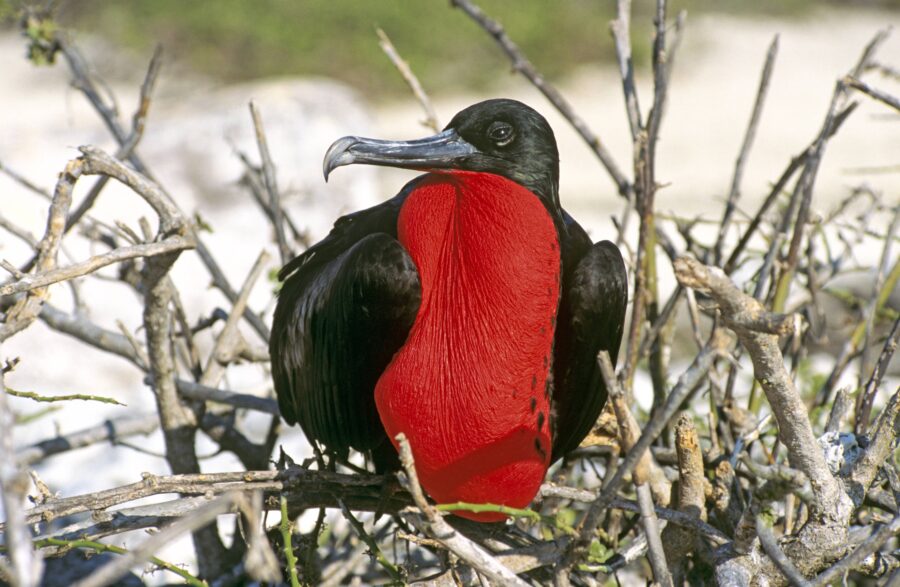
It’s not enough that lesser frigatebirds harass other seabirds for no reason – they steal their rivals’ meals after they’ve been eaten. The behaviour is known as kleptoparasitism, and it’s rare in birds, making the frigatebird a special kind of scoundrel.
Stealing food from other animals is a strategy used by a number of arthropods, such as insects and spiders, as well as some species of birds and mammals.
The neon cuckoo bee (Thyreus nitidulus), for example, uses a form of kleptoparasitism called brood parasitism, where the adult bees deposit their eggs in the well-provisioned nests of other bees so that their larvae can fatten themselves up at someone else’s expense.
The dew drop spider (Argyrodes antipodianus) from Australia and New Zealand squats in the webs of other spiders, such as orb weavers, and steals its host’s food. It even builds a small ‘support web’ attached to its host’s web so it can swing to safety with stolen food bundles.
Lesser frigatebirds (Fregata ariel) are far less sneaky. They will chase down and harass other seabirds such as boobies and tropicbirds until they regurgitate their prey. The frigatebirds will then snatch the vomited-up food in mid-air, forcing the other birds to find another meal.
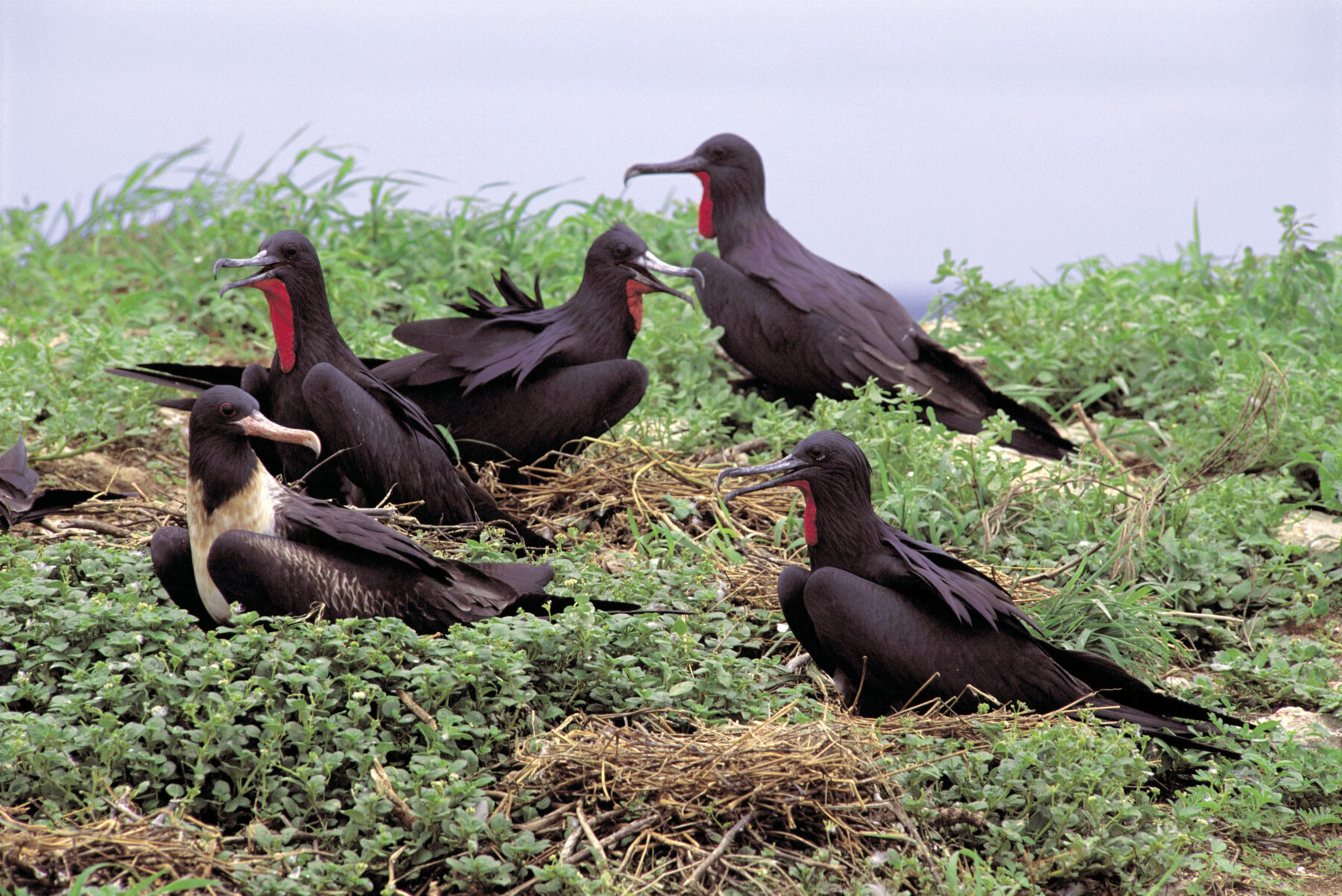
And it’s not even like the lesser frigatebird is desperately trying to provide for a large family. Most only raise one chick at a time. But, to be fair, those chicks can take more than nine months to raise, which is one of the longest parental commitments in the avian world.
Lesser frigatebirds exist in crowded, noisy colonies – sometimes with thousands of breeding pairs. Large colonies include those on Manowar Island of the Wellesley Islands off the coast of northern Queensland and on the Lacepedes, a group of four islands off the Kimberley coast of Western Australia.
Both lesser frigatebird parents share the responsibilities, including feeding, sheltering and defending the chick. For the first seven weeks post-hatch, they won’t leave the chick for a second, for fear of predators – including other frigatebirds. Yep, lesser frigatebirds aren’t just jerks to other species. They’re jerks to each other.
For the few months of the year that they’re not raising a chick, frigatebirds are free to do what they love – flying at sea for long stretches of time. A study of great frigatebirds (Fregata minor), a close relative of the lesser frigatebird, found that they can stay continuously aloft for up to two months, stealing food from other birds or snatching it from the ocean and taking short naps mid-air.
Which sounds pretty stressful to me… but at least it’s quiet.
